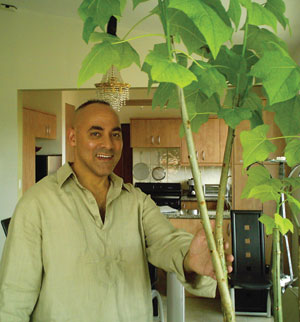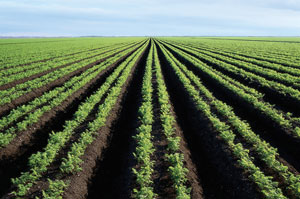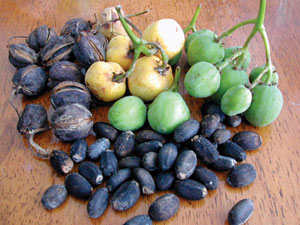Emerging Opportunities on Uncharted Grounds




January 1, 2008
BY Bryan Sims
Aside from the profit motive, biodiesel project developers and producers recognize that stimulating rural and urban economic growth, rejuvenating agricultural resources and reducing a country's dependency on imported oil are prevailing motives behind industry development. That is certainly the case in Central America. Although Europe, Brazil and the United States have a considerable lead on Central America in terms of biodiesel capacity, the country can use the models developed by others to position itself as a viable competitor within the global biodiesel market.
Costa Rica, El Salvador, Honduras and Guatemala are considered to be the best equipped to expand their biodiesel production, based on their current production capabilities, the organization of their ag industries and their governments' ability to recognize the importance of biofuels and to legislate accordingly. Nicaragua and Panama also have potential. "These countries already have a long tradition of producing the crops that are basic for biodiesel production," says Arnaldo Vieira de Carvalho, senior renewable energy specialist for the Inter-American Development Bank, the oldest and largest regional bank in the world. The IDB is the main source of multilateral financing for economic, social and institutional development in Latin America and the Caribbean. Through loans and grants the financial institution helps to finance development projects and support strategies to reduce poverty, expand growth, increase trade and investment, promote regional integration, and foster private-sector development and modernization of developing countries. "Central America is in a very good position to accelerate its biofuels movement," de Carvalho says. "It may not be moving as fast as Brazil or the United States, but it'll gradually get there if more projects continue to establish a biodiesel footprint."
Leader of the Pack
Of all the Central American countries, Costa Rica seems to be the most politically amenable to the establishment of a biodiesel industry. The country has had no standing army since 1949, it is a democratic republic (considered more democratic than the United States), more than 90 percent of its transportation fuel is diesel based and it's capable of producing oil feedstocks such as jatropha and palm. Most importantly, Costa Rica intends to be carbon neutral by 2021 and to displace 25 percent of the oil it imports with renewable sources by 2010.
Compania Nacional Bio Combustibles, a Costa Rican biodiesel producer formed in early 2007, plans to build a 20 MMgy biodiesel plant in Port Caldera. The facility will have rail access to the Port of Caldera allowing it to process imported raw palm oil. The rail access would facilitate the distribution of CNBC's biodiesel to the domestic and global off-take markets. The company will also collect waste vegetable oil from within the country, and it has secured the rights to purchase 4,300 acres of property for a jatropha plantation to diversify its feedstock supply. The jatropha oil, however, won't be available for processing until 2011. According to CNBC Founder and President Aaron Ariel, the facility is expected to be fully operational in November 2008 and initial plans are to export the refined biodiesel to surrounding Latin American and South American countries. At 20 MMgy, the projected capacity of the CNBC plant is large for a Central American country. Small-scale projects are focused on gradually introducing biofuels into the domestic market, whereas the large-scale facilities are producing for export, which is CNBC's initial goal, Ariel says. "If you build a 100 MMgy biodiesel refinery in Costa Rica, the country won't be able to absorb it unless you start marketing it to private enterprises like municipalities and so forth," he says. "Our primary target right now is to export our biodiesel. If the government wants it, we will provide it as well."
In August, New York-based Amelot Holdings Inc. and Pan-Am Biofuels Inc. of Park City, Utah, formed a joint venture to develop a 2,000-acre jatropha plantation in Guanacaste, Costa Rica. The plantation, when fully operational in mid-2008, would produce up to 3 million gallons of crude jatropha oil. The project has been successful thus far because of the region's ideal jatropha growing conditions and a unique, low-risk funding method, says Pan-Am Biofuels President and Chief Executive Officer Joseph Black. "[Costa Rica] is very eco-conscious and they believe that the biofuels industry will reinvent farming, revitalize the economy and protect their national interest [regarding dependence] on fossil fuels," he says. "They import 100 percent [of their oil] from Venezuela at this point. They really welcome biofuels into their country."
Pan-Am Biofuels produces jatropha saplings from selected and tested seeds and offers turnkey projects to corporations and individuals seeking to develop plantations. Pan-Am partnered with Amelot because of its expertise in foreign relations and forestry management. Amelot, which has been in the forestry industry since 1998, provided consulting services regarding seeds, fertilizer, land management and soil testing. Currently, the partnership's efforts are aimed at improving its 81-acre jatropha seedling nursery. The seedlings will be produced from seeds imported from India. Once the trees mature, they will be moved from the nursery to a plantation that will have the capacity to hold about 2 million jatropha trees. Pan-Am also has a research and development lab at the nursery where it will be able to optimize productivity of the trees. Along with the jatropha trees, castor plants that produce oil for biodiesel production will be grown.
The crude jatropha oil will be stored in tanks that Pan-Am has established on-site. Amelot Holdings has exclusive rights to all of the oil produced by the plantation and its initial plans are to sell it to domestic refiners in Costa Rica, according to Black. In the future, both parties may consider using mobile units to refine the crude jatropha oil on the plantation, Black adds. "That's not something that we're including in our business plan at this point," Black says. "Right now, we're looking strictly at pressing the seeds, extracting the oil and then selling the raw crude oil to be processed into biodiesel. If it works out where it's eminently more profitable and more efficient to have a mobile processing refinery right on the premises, where we can go from farm to farm during the harvest, then we'll certainly take a look at that. We want to keep it simple right now."
Jatropha's Advantages
While palm, soybean, other vegetable oils and waste grease continue to be feedstocks of choice for biodiesel production, producers have been turning to jatropha. The inedible crop thrives in subtropical regions and has been elevated to the top of the list as a primary source of feedstock for biodiesel production in Central America. A single jatropha tree yields approximately 1 gallon of biodiesel. Other advantages are: it doesn't compete with existing food crops, uses less energy to produce, its glycerin byproduct can be used in the petrochemical and specialty chemical industries, it's low in sulfur, and the husks that hold the seeds are high in nitrogen and can be used as a fertilizer. "There's always been a focus on Central America when it comes to certain agricultural feedstocks [for biodiesel production], certainly from the U.S. perspective," says Craig Frank, chairman of Alternative Fuels Americas, an emerging farm-to-fuel producer in the global biodiesel sector. The Florida-based company signed an agreement with Technoserve Guatemala, the local branch of a nongovernmental organization that works with entrepreneurs in poor, rural areas of developing countries, to develop a 600-acre area in southern Guatemala to experiment with different jatropha varieties. AFA plans to produce about 80 MMgy of biodiesel to sell directly to domestic markets. The company has a five-year expansion plan that calls for the aggregate control of at least 100,000 hectares (247,105 acres) for jatropha. In addition to its plans in Guatemala, AFA intends to expand its farm-to-fuel venture into Costa Rica, Panama and El Salvador. "Part of the challenge with these smaller, developing countries is that they don't have a whole lot of room for error," Frank says, adding that starting small could be the best strategy for other producers looking to do business in Central America. "If they make a mistake with a [large-scale] investment it could take [a country's] whole initiative down. They have to find ways to mitigate those risks."
Bryan Sims is a Biodiesel Magazine staff writer. Reach him at bsims@bbibiofuels.com or (701) 738-4962.
Costa Rica, El Salvador, Honduras and Guatemala are considered to be the best equipped to expand their biodiesel production, based on their current production capabilities, the organization of their ag industries and their governments' ability to recognize the importance of biofuels and to legislate accordingly. Nicaragua and Panama also have potential. "These countries already have a long tradition of producing the crops that are basic for biodiesel production," says Arnaldo Vieira de Carvalho, senior renewable energy specialist for the Inter-American Development Bank, the oldest and largest regional bank in the world. The IDB is the main source of multilateral financing for economic, social and institutional development in Latin America and the Caribbean. Through loans and grants the financial institution helps to finance development projects and support strategies to reduce poverty, expand growth, increase trade and investment, promote regional integration, and foster private-sector development and modernization of developing countries. "Central America is in a very good position to accelerate its biofuels movement," de Carvalho says. "It may not be moving as fast as Brazil or the United States, but it'll gradually get there if more projects continue to establish a biodiesel footprint."
Leader of the Pack
Of all the Central American countries, Costa Rica seems to be the most politically amenable to the establishment of a biodiesel industry. The country has had no standing army since 1949, it is a democratic republic (considered more democratic than the United States), more than 90 percent of its transportation fuel is diesel based and it's capable of producing oil feedstocks such as jatropha and palm. Most importantly, Costa Rica intends to be carbon neutral by 2021 and to displace 25 percent of the oil it imports with renewable sources by 2010.
Compania Nacional Bio Combustibles, a Costa Rican biodiesel producer formed in early 2007, plans to build a 20 MMgy biodiesel plant in Port Caldera. The facility will have rail access to the Port of Caldera allowing it to process imported raw palm oil. The rail access would facilitate the distribution of CNBC's biodiesel to the domestic and global off-take markets. The company will also collect waste vegetable oil from within the country, and it has secured the rights to purchase 4,300 acres of property for a jatropha plantation to diversify its feedstock supply. The jatropha oil, however, won't be available for processing until 2011. According to CNBC Founder and President Aaron Ariel, the facility is expected to be fully operational in November 2008 and initial plans are to export the refined biodiesel to surrounding Latin American and South American countries. At 20 MMgy, the projected capacity of the CNBC plant is large for a Central American country. Small-scale projects are focused on gradually introducing biofuels into the domestic market, whereas the large-scale facilities are producing for export, which is CNBC's initial goal, Ariel says. "If you build a 100 MMgy biodiesel refinery in Costa Rica, the country won't be able to absorb it unless you start marketing it to private enterprises like municipalities and so forth," he says. "Our primary target right now is to export our biodiesel. If the government wants it, we will provide it as well."
In August, New York-based Amelot Holdings Inc. and Pan-Am Biofuels Inc. of Park City, Utah, formed a joint venture to develop a 2,000-acre jatropha plantation in Guanacaste, Costa Rica. The plantation, when fully operational in mid-2008, would produce up to 3 million gallons of crude jatropha oil. The project has been successful thus far because of the region's ideal jatropha growing conditions and a unique, low-risk funding method, says Pan-Am Biofuels President and Chief Executive Officer Joseph Black. "[Costa Rica] is very eco-conscious and they believe that the biofuels industry will reinvent farming, revitalize the economy and protect their national interest [regarding dependence] on fossil fuels," he says. "They import 100 percent [of their oil] from Venezuela at this point. They really welcome biofuels into their country."
Pan-Am Biofuels produces jatropha saplings from selected and tested seeds and offers turnkey projects to corporations and individuals seeking to develop plantations. Pan-Am partnered with Amelot because of its expertise in foreign relations and forestry management. Amelot, which has been in the forestry industry since 1998, provided consulting services regarding seeds, fertilizer, land management and soil testing. Currently, the partnership's efforts are aimed at improving its 81-acre jatropha seedling nursery. The seedlings will be produced from seeds imported from India. Once the trees mature, they will be moved from the nursery to a plantation that will have the capacity to hold about 2 million jatropha trees. Pan-Am also has a research and development lab at the nursery where it will be able to optimize productivity of the trees. Along with the jatropha trees, castor plants that produce oil for biodiesel production will be grown.
The crude jatropha oil will be stored in tanks that Pan-Am has established on-site. Amelot Holdings has exclusive rights to all of the oil produced by the plantation and its initial plans are to sell it to domestic refiners in Costa Rica, according to Black. In the future, both parties may consider using mobile units to refine the crude jatropha oil on the plantation, Black adds. "That's not something that we're including in our business plan at this point," Black says. "Right now, we're looking strictly at pressing the seeds, extracting the oil and then selling the raw crude oil to be processed into biodiesel. If it works out where it's eminently more profitable and more efficient to have a mobile processing refinery right on the premises, where we can go from farm to farm during the harvest, then we'll certainly take a look at that. We want to keep it simple right now."
Jatropha's Advantages
While palm, soybean, other vegetable oils and waste grease continue to be feedstocks of choice for biodiesel production, producers have been turning to jatropha. The inedible crop thrives in subtropical regions and has been elevated to the top of the list as a primary source of feedstock for biodiesel production in Central America. A single jatropha tree yields approximately 1 gallon of biodiesel. Other advantages are: it doesn't compete with existing food crops, uses less energy to produce, its glycerin byproduct can be used in the petrochemical and specialty chemical industries, it's low in sulfur, and the husks that hold the seeds are high in nitrogen and can be used as a fertilizer. "There's always been a focus on Central America when it comes to certain agricultural feedstocks [for biodiesel production], certainly from the U.S. perspective," says Craig Frank, chairman of Alternative Fuels Americas, an emerging farm-to-fuel producer in the global biodiesel sector. The Florida-based company signed an agreement with Technoserve Guatemala, the local branch of a nongovernmental organization that works with entrepreneurs in poor, rural areas of developing countries, to develop a 600-acre area in southern Guatemala to experiment with different jatropha varieties. AFA plans to produce about 80 MMgy of biodiesel to sell directly to domestic markets. The company has a five-year expansion plan that calls for the aggregate control of at least 100,000 hectares (247,105 acres) for jatropha. In addition to its plans in Guatemala, AFA intends to expand its farm-to-fuel venture into Costa Rica, Panama and El Salvador. "Part of the challenge with these smaller, developing countries is that they don't have a whole lot of room for error," Frank says, adding that starting small could be the best strategy for other producers looking to do business in Central America. "If they make a mistake with a [large-scale] investment it could take [a country's] whole initiative down. They have to find ways to mitigate those risks."
Bryan Sims is a Biodiesel Magazine staff writer. Reach him at bsims@bbibiofuels.com or (701) 738-4962.
Advertisement
Advertisement
Upcoming Events





